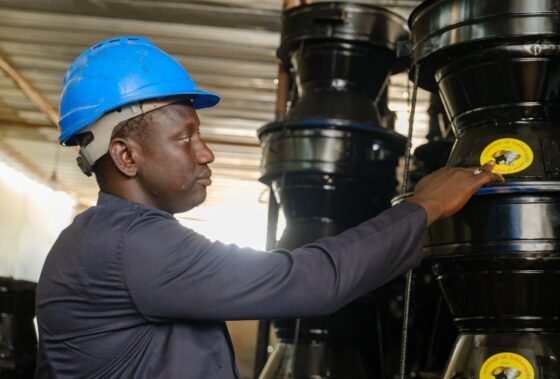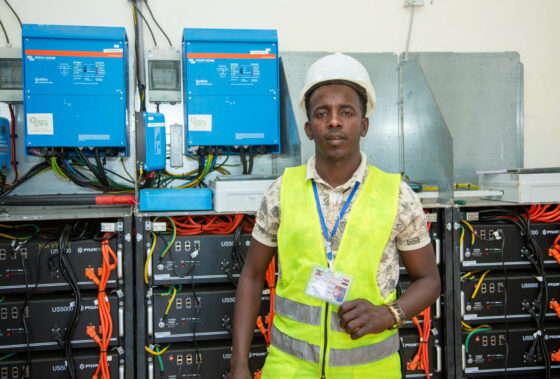In Bolivia, women-led cooperatives are able to diversify their product range through the Productive Use of renewable Energy.
Griselda Huallata is leader and vice president of SHAN, a women’s cooperative in the remote Tsimané community of San Luis Chico located in the Pilón Lajas Reserve. The Tsimané are one of the 36 indigenous nations recognized by the Bolivian Constitution. They live in the Pilón Lajas Biosphere Reserve and Communal Lands, a protected area located in northern Bolivia with over 400,000 hectares of sub-Andean and Amazonian rainforests. Besides being the cultural heritage of the Tsimané, it is also one of the most biodiverse regions on the planet, hosting more than 3,000 species of plants and some 748 species of fauna.
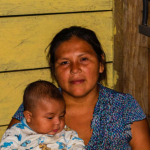
Want to know more about how EnDev is advancing gender equality and women‘s self-empowerment through energy access? Click here.
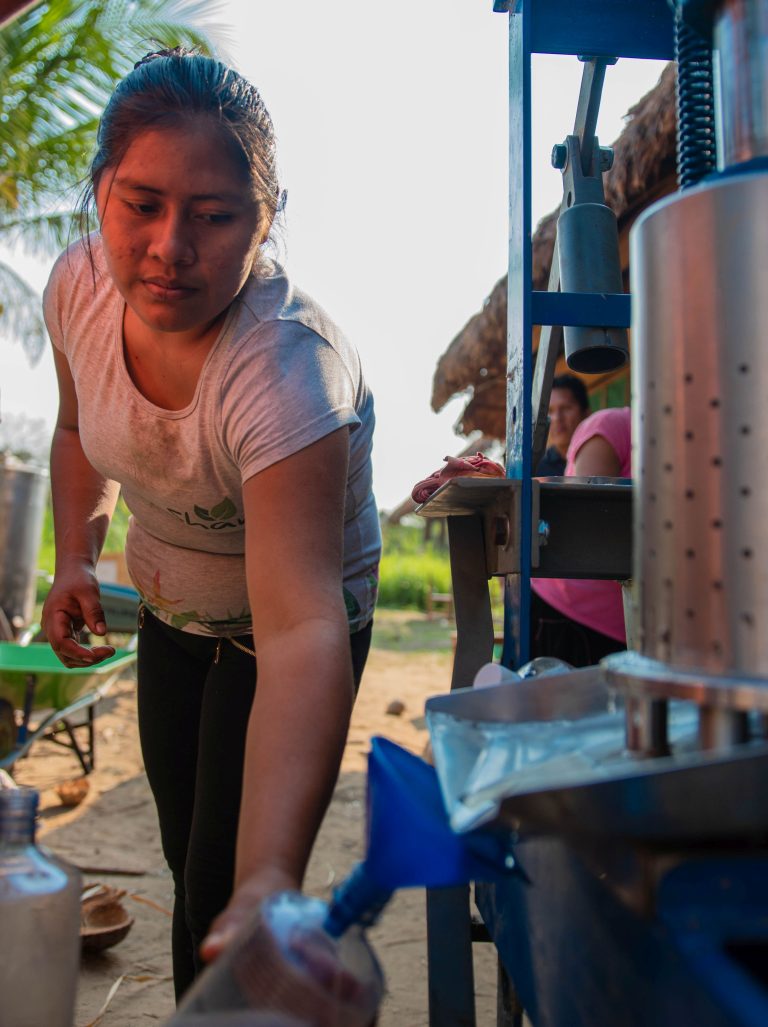
Griselda and the other women aim to bring back ancestral knowledge and combine it with new percolation and extraction technologies to create unique Amazonian essential oils and handmade soaps. However, SHAN’s lack of access to electricity and cooking energy was one of the main impediments to business development and growth. The severe environmental conditions, particularly high temperatures and high humidity, caused SHAN’s products to deteriorate. The aromas volatilized, the soaps melted and lost their shape. Product standardization was impossible, compromising the quality and brand image of this emerging business.
To overcome this issue, EnDev´s Women’s Energy Fund (FEM) supported the women’s cooperative and the Wildlife Conservation Society (WCS) to establish a new business plan for 2021. The FEM is one of EnDev´s main instruments to empower women economically, providing support to women-led businesses to foster the Productive Use of Energy.
Through the Fund, SHAN was able to purchase photovoltaic systems for lighting and cold chain storage. In addition, EnDev provided technical support to the cooperatives´ members on the use, maintenance, and governance of the technology, thereby allowing the community to operate autonomously. Now, not only appliances for lighting and cooling are available, but also heating mantles for essential oil extractors and press machines for soaps. This means SHAN can utilize energy to diversify their products on offer, improve their incomes, and pursue further economic opportunities.
Before we had no light. Everything was dark. We were able to work for only a few hours during the day. Now we can work at night. We preserve the leaves, flowers, and fruits we collect. We cool the essential oils. We extract and store the soaps we make. Now we can collect more products, send greater quantities, and regularly, to the La Paz market.
Griselda Huallata, vice president of SHAN.
Griselda says that the dialogue between the Tsimané’s local wisdom and the knowledge brought by the different organizations has helped to broaden her capacities and skills. “Now, women are experimenting with other plants, extracting new active ingredients. We are motivated to continue testing. For this, we need more knowledge and skills.”
Griselda is also part of a community feminism in full construction, which objects to the native ancestral patriarchy resulting in women being systematically under-represented in decision-making processes that shape their societies and their own lives. Now the Tsimané women feel more empowered in their communities.
She claims: “If we hadn’t trained ourselves, if we hadn’t developed skills and started to make our ideas come true, we wouldn’t have reached the balance that we have now. Before it was, ´Only I work! Only I bring money!` But now, also the women work and get resources. Then, we pool the money that we both contribute for our family welfare.”
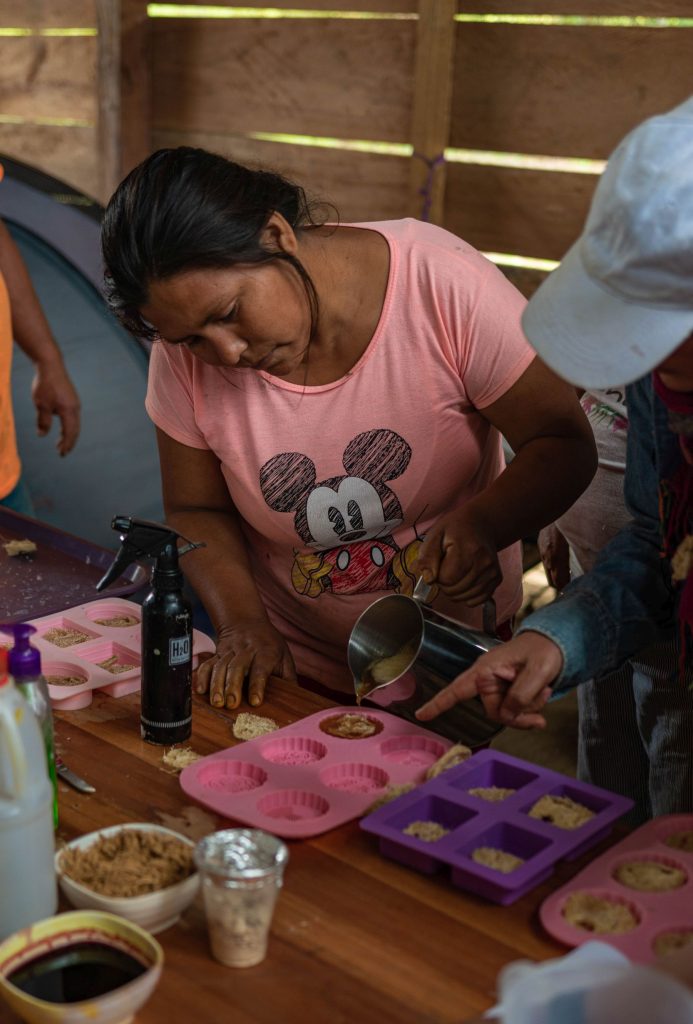
Did you know…?
Want to know more about Productive Use of Energy activities within EnDev? Click here.


